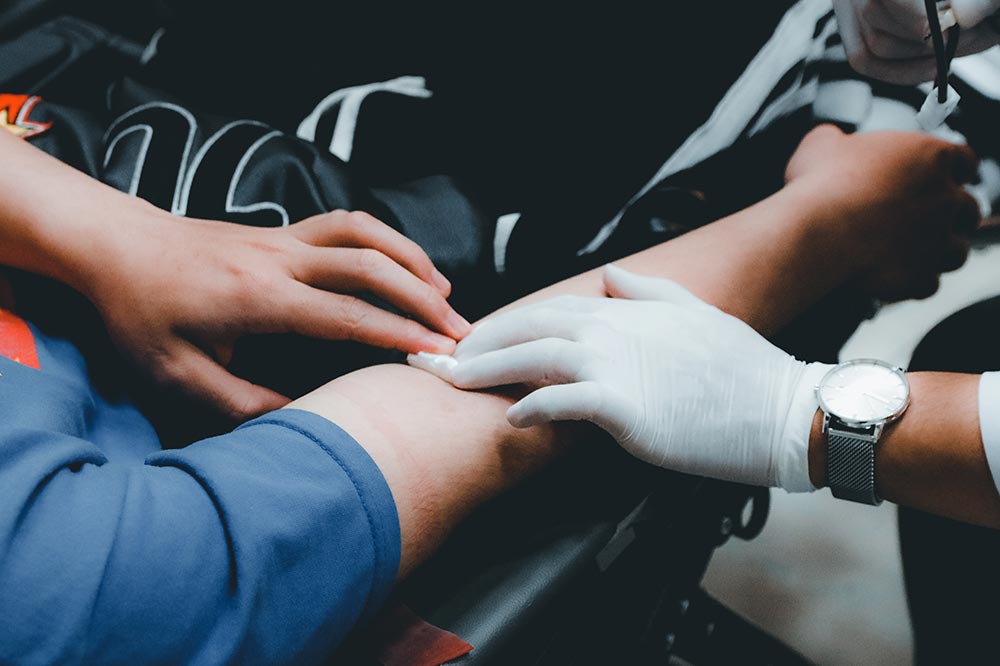When we or someone we care about gets diagnosed with a disease, it’s natural to feel a wide range of emotions all at once. We must come to terms with dread, concern, despair, and even anger. Many questions about how, why, and what will happen next are desperately begging for answers in our heads.
It is more difficult when the diagnosis is of a serious disease like myelodysplastic syndrome (MDS), which involves abnormalities of the blood cells found in the bone marrow.
Known as “bone marrow failure disorder”, it doesn’t allow the bone marrow to produce sufficient healthy blood cells to circulate in our body. The condition causes stem cells to not develop, causing them to amass in the bone marrow and live shorter lives, thereby not making enough mature blood cells to circulate.
Listening to messages and reading stories from actual patients, their parents, family members, and spouses living with the condition can better understand the effects or impact of this bone marrow disorder.
The enlightening insights patients and family members share about their personal journeys can help the entire MDS patient community, especially those newly diagnosed and who need to support the most.
So if you have myelodysplastic syndrome and you are undergoing a rough time right now, here are five hopeful messages for encouragement:
5 Hopeful Messages for People with MDS
- “There is help”
As with other patient helplines, MDS helplines have trained and compassionate information specialists ready to answer questions, provide the emotional support needed and get you connected with the proper health experts both local and national.
The helplines cater to anyone interested who simply wants to learn more about the disease or is affected by the condition including friends and caregivers of the patient. These helplines come in the forms of telephone support, emails, responses to online posts, and online chats.
The most common topics the helplines respond to are:
- Understanding MDS and its possible complications
- Available treatment options including complementary and alternative therapies
- Finding experts or healthcare professionals specializing in the disease
- Support groups, community connections, and connecting to peer support network volunteers
- Emotional support
- Educational conferences, courses, and other reference materials
- Free print materials
Referrals to resources, medical foundations, and programs that may provide financial assistance
- Stories of hope
Recommended readings are amazing human interest stories on bone marrow failure, which are told by people who are dealing with these disorders. The enlightening insights patients and family members share about their personal journeys can help the entire MDS community.
Get involved in organizations that help patients and caregivers, too, like AAMDSIF, DKMS, and BeTheMatch. Keep hoping and praying, but don’t stop laughing! There’s a cure coming, just around the corner. And stay positive, too! That’s key to making it through this.
- “There are advances in medicine”
Some individuals with high-risk or very-high-risk MDS may benefit from allogeneic stem-cell transplantation (ASCT), a treatment in which a person’s blood-forming cells are replaced with cells from a donor, depending on the severity of their malignancy and the number of blasts in their bone marrow.
Hypomethylating agents (HMA) can be used to treat patients with higher-risk MDS. These drugs are a type of chemotherapy that targets quickly dividing cells. Treatment with an HMA can increase blood counts, lessen the risk of leukemia, and perhaps extend life in certain people with higher-risk MDS.
- “There are support networks and compassionate support groups”
Connecting with other patients and families may be a powerful and inspiring experience. You can learn from others, share your experiences, get and provide support, and meet new people in the MDS communities. You can connect with someone one-on-one or in a group setting. You can communicate via phone, in person, or online.
- “Fixing the unfixable”
Johns Hopkins researchers performed a series of clinical trials using drugs that may restore the normal function of genes.
Patients with MDS and their care partners and family members are encouraged to discuss their feelings with their physicians, nurses, social workers, and other members of the healthcare team. They are also encouraged to inquire about enrolling in an MDS clinical trial.
Clinical trials are frequently used to determine whether the advantages of a product or treatment outweigh the known dangers for the intended purpose and, in some situations, whether it is a better option than already available treatments. MDS clinical trials can investigate new drugs, different combinations of existing medications, new approaches to ASCT, and other novel therapeutic methods for people with higher risk.
So if you or someone important to you has MDS, don’t be discouraged. Connect with support groups and surround yourself with messages of hope and people who can encourage you. There is still hope for people living with MDS with the different MDS clinical trials done.
